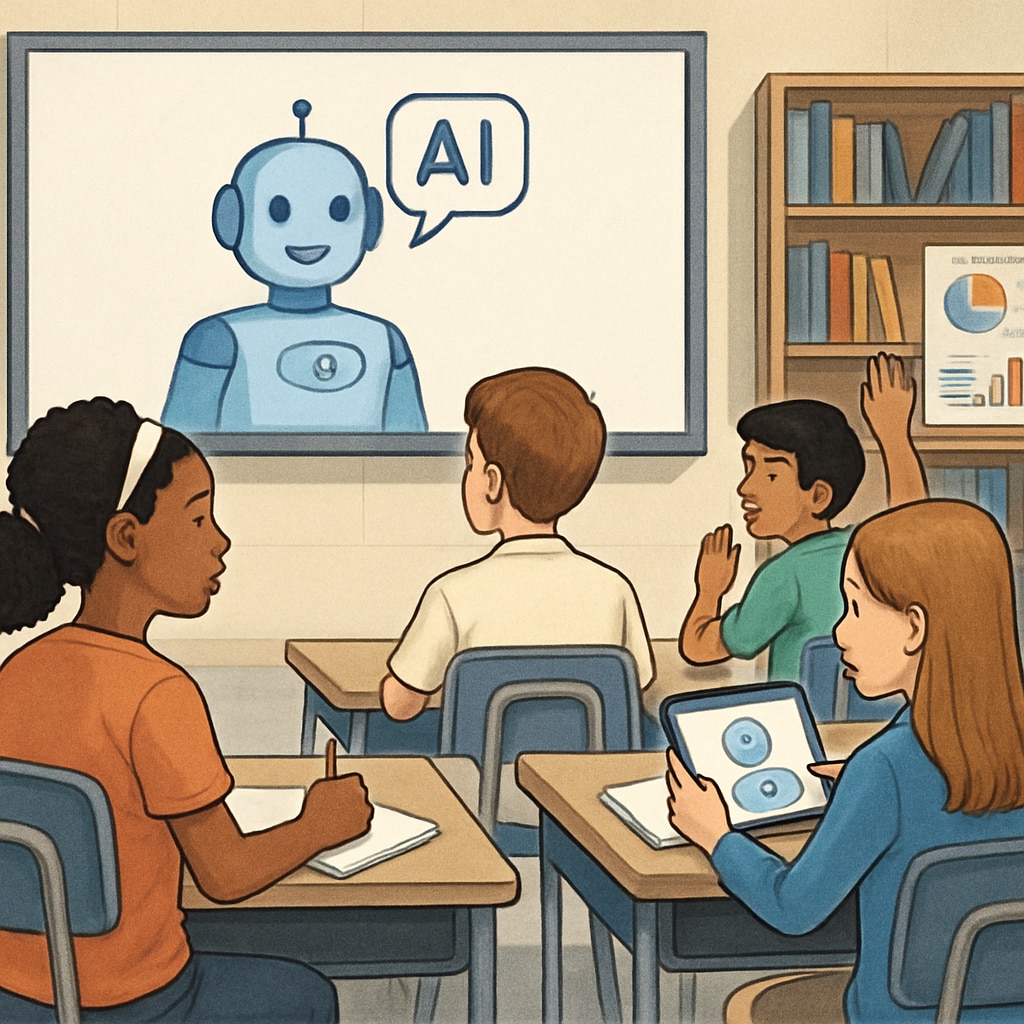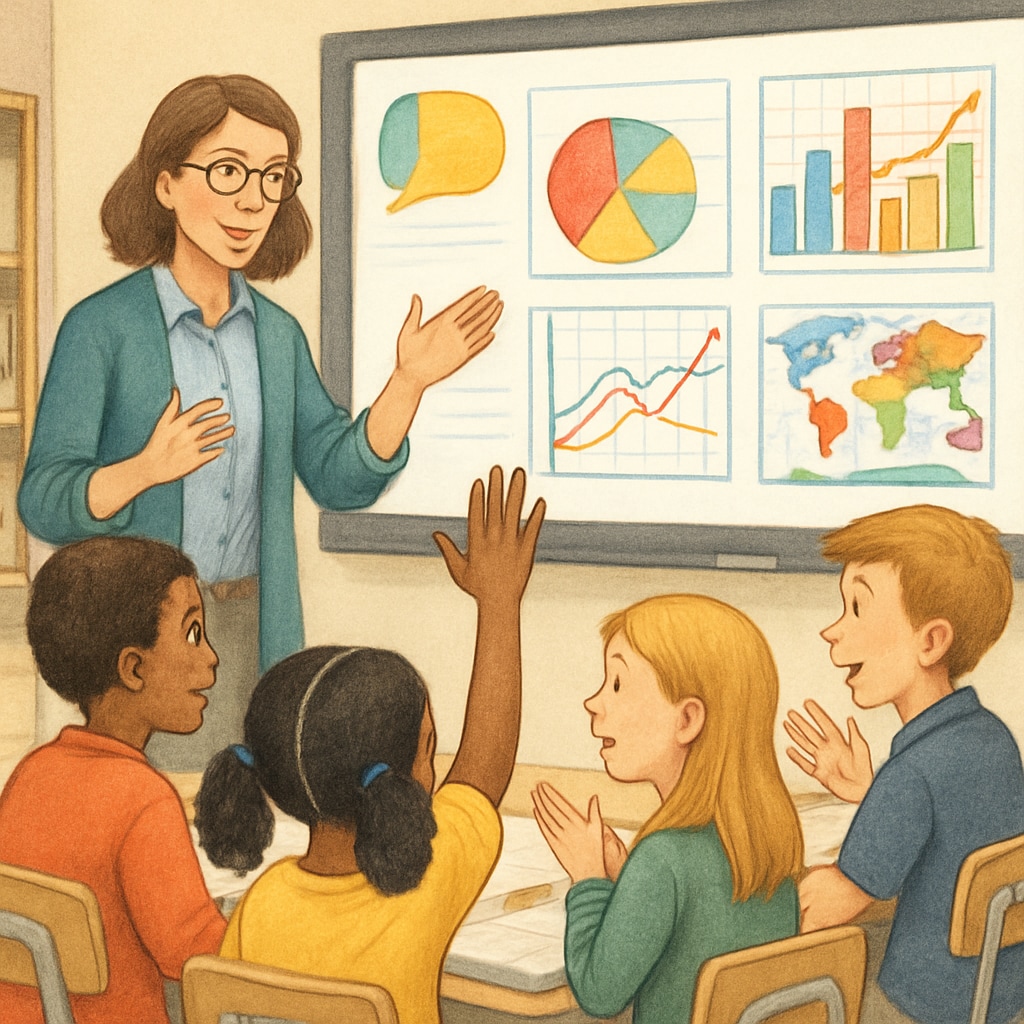The rapid integration of AI into classrooms has sparked a critical conversation about the future of education. AI tools such as Google Gemini are revolutionizing the learning experience, but the impact on teacher value, salaries, and the broader education landscape cannot be ignored. As efficiency becomes a cornerstone of education, teachers may face unprecedented challenges in demonstrating their professional worth and securing appropriate compensation.
How AI Is Transforming the Classroom
Artificial Intelligence is no longer just a futuristic concept; it is actively reshaping K-12 education today. Tools like Google Gemini and other AI-powered platforms are capable of personalizing lesson plans, automating grading, and offering real-time student feedback. These systems can adapt to individual learning paces, making education more tailored and efficient than ever before.
However, this raises an important question: where does this leave teachers? While AI can handle repetitive tasks, it cannot replace the emotional intelligence, mentorship, and creativity that teachers bring to their classrooms. Yet, as schools increasingly rely on AI to deliver results, the perceived value of human educators may diminish, creating a ripple effect on their roles and salaries.

Reevaluating Teacher Value in an AI-Driven Era
One of the most pressing concerns is the potential undervaluation of teachers’ contributions. In an AI-dominated classroom, administrators may prioritize cost-cutting measures, leading to a reassessment of teacher salaries. If AI can handle a significant portion of educational tasks, the argument for maintaining or increasing teacher pay becomes more challenging to make.
However, it is vital to recognize the unique skills that teachers bring to the table. Emotional support, conflict resolution, and the ability to inspire students are irreplaceable aspects of teaching. A balanced approach that leverages AI for efficiency while preserving the human touch of educators is essential.
For example, studies have shown that AI in education can enhance learning outcomes when used as a complement to traditional teaching methods. This highlights the importance of collaboration between technology and educators rather than competition.
The Future of Teacher Salaries
The integration of AI into education prompts a reexamination of salary structures for teachers. As AI takes over certain responsibilities, there is a risk that educational institutions could justify lower wages for teachers, arguing that their workload has decreased. This could have a demoralizing effect on the profession, deterring talented individuals from pursuing teaching careers.
On the other hand, AI could also create opportunities for teachers to specialize in areas that machines cannot replicate, such as social-emotional learning and creative problem-solving. This shift could lead to a restructuring of salaries to reflect the specialized skills that teachers bring to an AI-enhanced classroom.
For educational policymakers, the challenge lies in creating salary models that reward teachers for their unique contributions while acknowledging the role of AI. According to Britannica, AI’s impact on industries often leads to job transformation rather than outright replacement. The education sector must adopt a similar mindset.

Balancing Technology and Human Expertise
To navigate this transition, schools and policymakers must strike a balance between technological innovation and human expertise. Teachers should be equipped with training to effectively integrate AI tools into their teaching methods. This not only enhances their productivity but also reinforces their indispensable role in the education ecosystem.
Furthermore, teacher salaries should reflect the evolving demands of the profession. As educators take on more specialized and mentorship-oriented roles, their compensation must align with these responsibilities. Transparency in how AI impacts workloads and a clear delineation of teacher contributions will be key to fair salary negotiations.
In conclusion, the rise of AI in education is both a challenge and an opportunity. While it may prompt a reevaluation of teacher value and salaries, it also opens the door for educators to redefine their roles in meaningful ways. By fostering collaboration between AI and human expertise, the future of teaching can be both innovative and equitable.
Readability guidance: This article uses short paragraphs and clear subheadings to enhance readability. Lists and examples are included to summarize key points. Passive voice is minimized, and transition words ensure a logical flow throughout the text.


